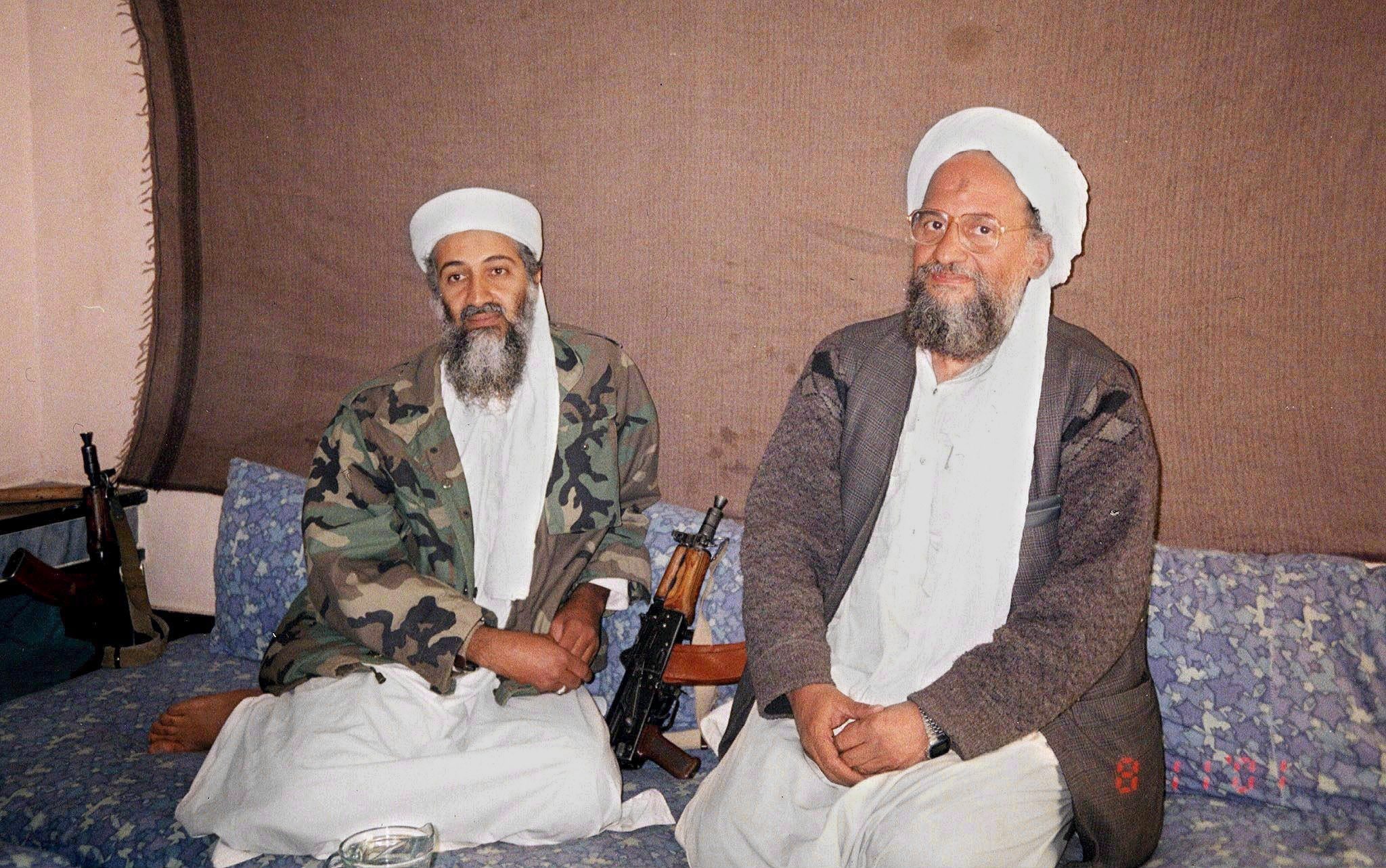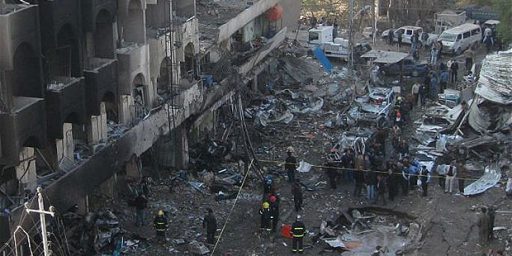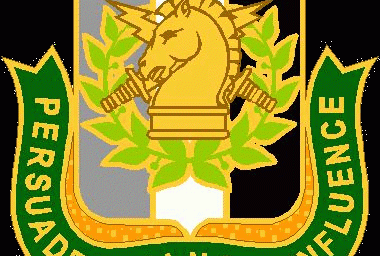U.S. Identifies al-Zarqawi’s Successor
The apparent successor to Abu Musab al-Zarqawi is a veteran Egyptian terrorist with ties to Ayman al-Zawahri, Al Qaeda’s number two and the leader of Egyptian Islamic Jihad.
The U.S. military said Thursday the man claiming to be the new al-Qaida in Iraq leader is Abu Ayyub al-Masri, an Egyptian with ties to Osama bin Laden’s deputy, Ayman al-Zawahri. Maj. Gen. William Caldwell, a U.S. military spokesman in Baghdad, said al-Masri apparently is the same person that al-Qaida in Iraq identified in a Web posting last week as its new leader, Abu Hamza al-Muhajer, a nom de guerre. Al-Muhajer claimed to have succeeded Abu Musab al-Zarqawi, who was killed in a June 7 U.S. airstrike, and vowed to avenge him in threatening Web statements in recent days.
The military showed a picture of al-Masri wearing a traditional white Arab headdress at a Baghdad news conference.
The Afghanistan-trained explosives expert is a key figure in the al-Qaida in Iraq network with responsibility for facilitating the movement of foreign fighters from Syria into Baghdad, Caldwell said. He has been a terrorist since 1982, “beginning with his involvement in the Egyptian Islamic Jihad, which was led by al-Zawahri,” Caldwell said.
The spokesman added that raids in April and May in southern Baghdad recovered material confirming his high-level involvement in the facilitation of foreign fighters. “Al-Masri’s intimate knowledge of al-Qaida in Iraq and his close relationship with (al-Zarqawi’s) operations will undoubtedly help facilitate and enable them to regain some momentum if, in fact, he is the one that assumes the leadership role,” Caldwell said.
He said, however, that al-Masri’s ability to exert leadership over al-Qaida cells remained unclear and there were other “al-Qaida senior leadership members and Sunni terrorists” who might try to take over the operations. Caldwell singled out Abu Abdul-Rahman al-Iraqi, who in the past had been identified as al-Qaida in Iraq’s deputy leader in statements by the group, and Abdullah bin Rashid al-Baghdadi, the leader of the Mujahedeen Shura Council — five allied groups in the Sunni Arab-dominated insurgency.
It may well be the case that al-Masri has difficulty consolidating control. It’s interesting, though, that an Iraqi Sunni was not put atop the organization in order to get past the stigma of being perceived as an alien force.






1. I expect that some of this background was generated prior to last week. I heard that Abdul-Rahman was with al-Zarqawi when the bombs came thru the roof. Abdul-Rahman is dirt and not a likely successor!
2. My expectation is that the Iraqis will be joining with the Americans to terminate foreign fighters. It is a logical step to build Iraqi confidence and experience. It will help fence-sitters decide to join with the new government.
They probably couldn’t find an Iraqi Sunni who wanted anything to do with al Qaeda.
This is obviously a case of illegal aliens taking jobs from native Iraqis. Perhaps Iraq should consider building a fence and …